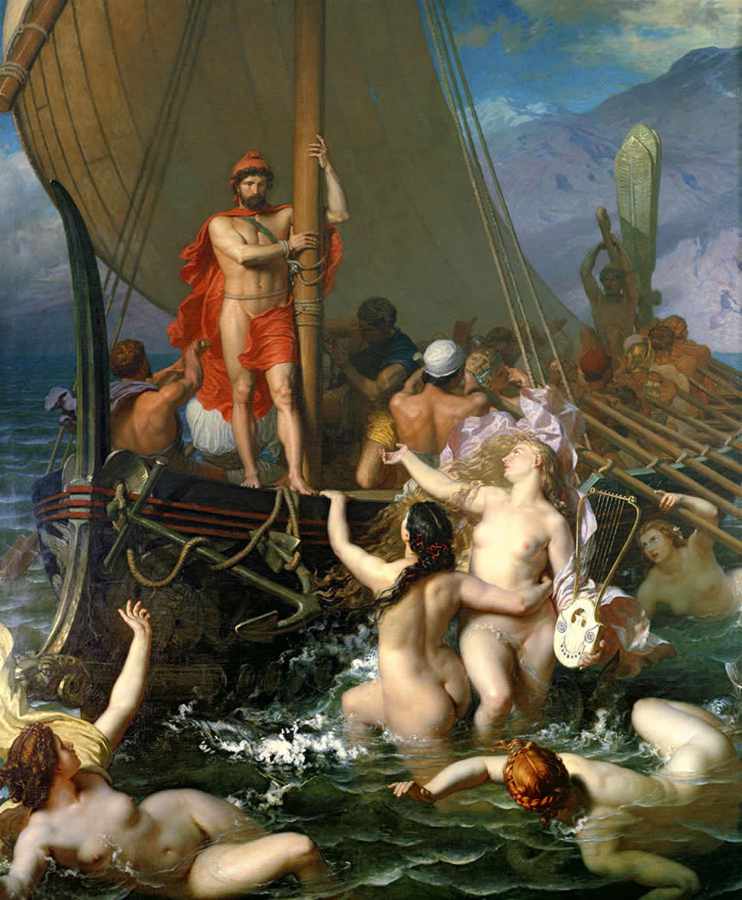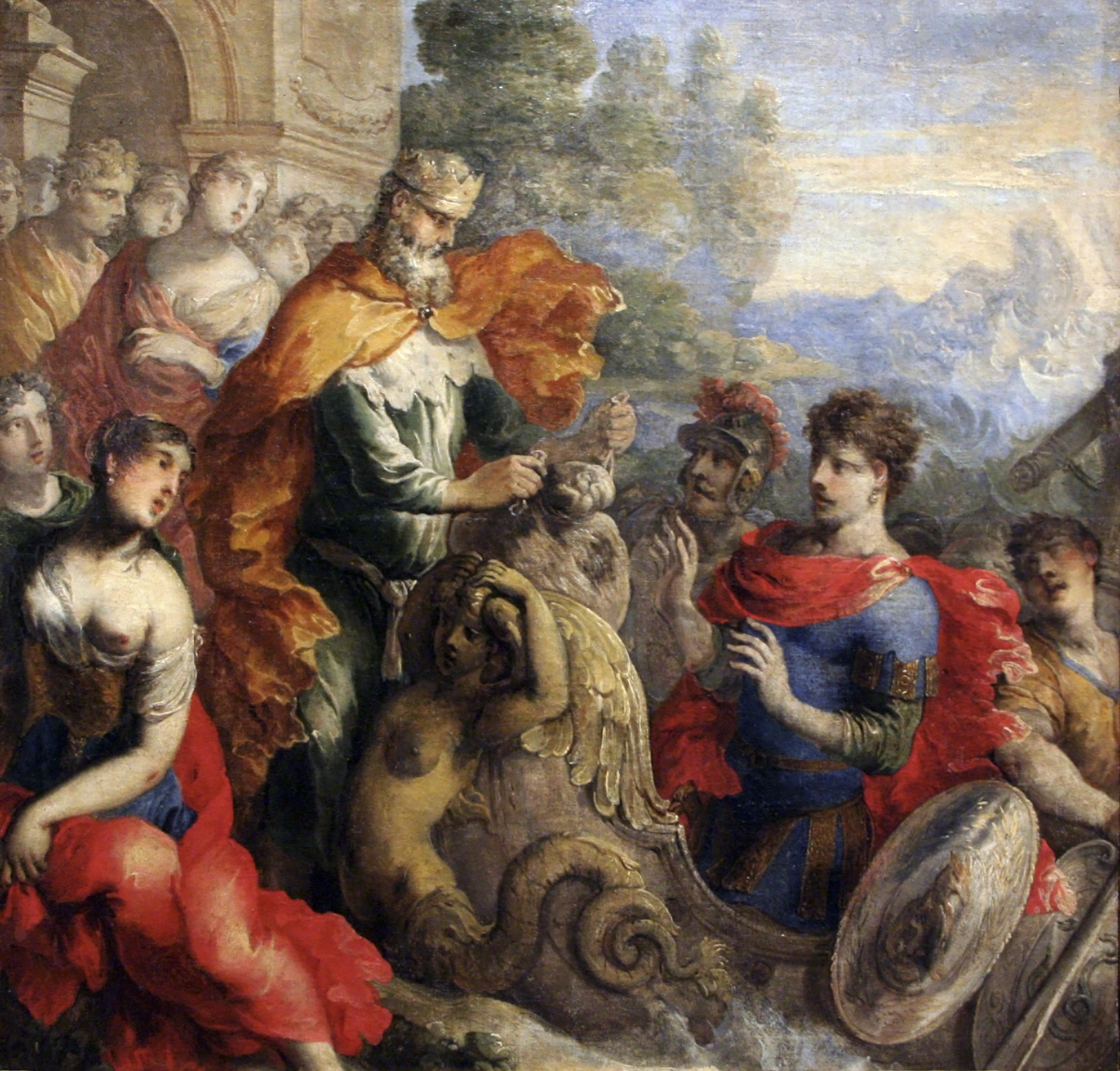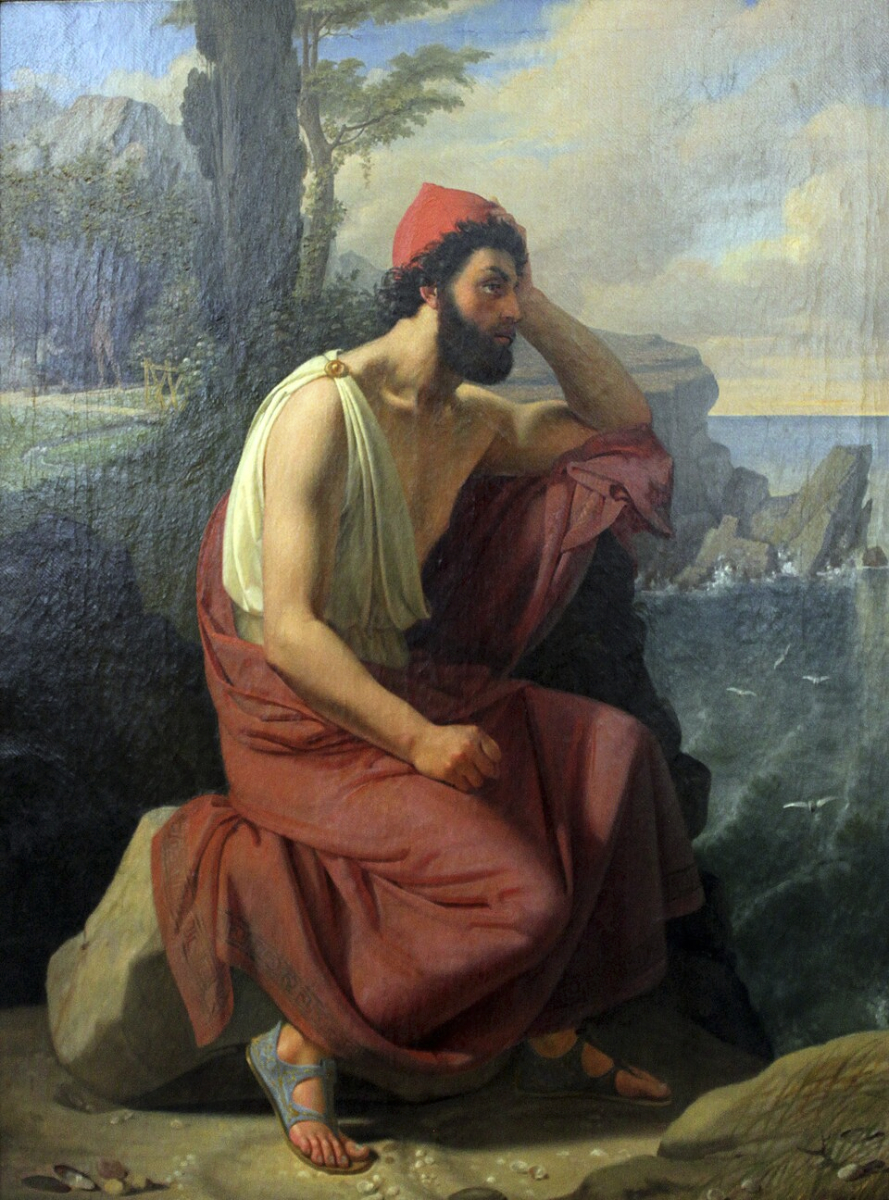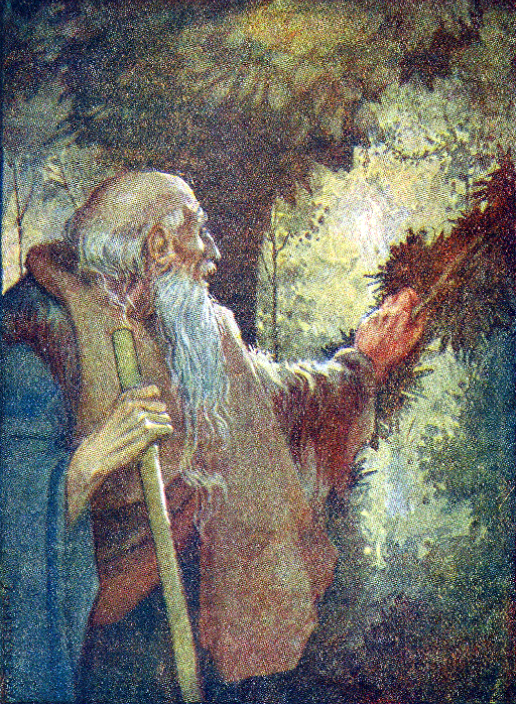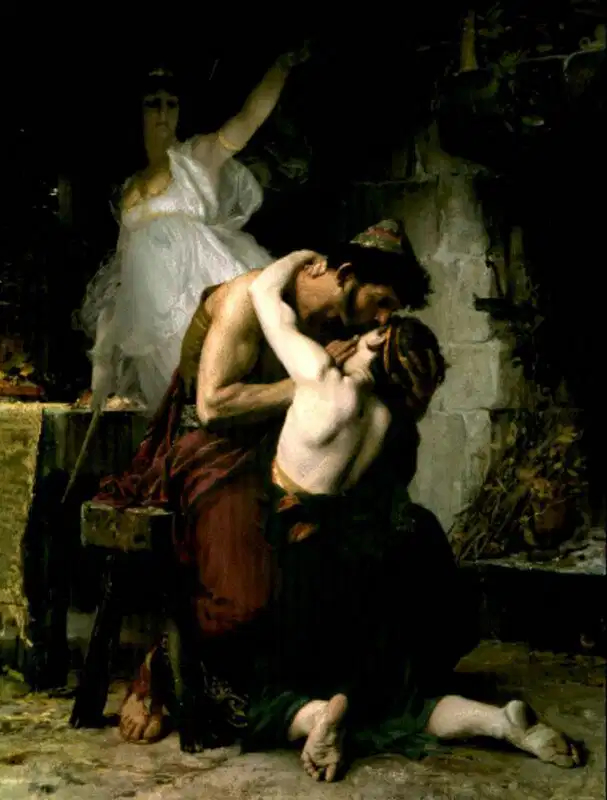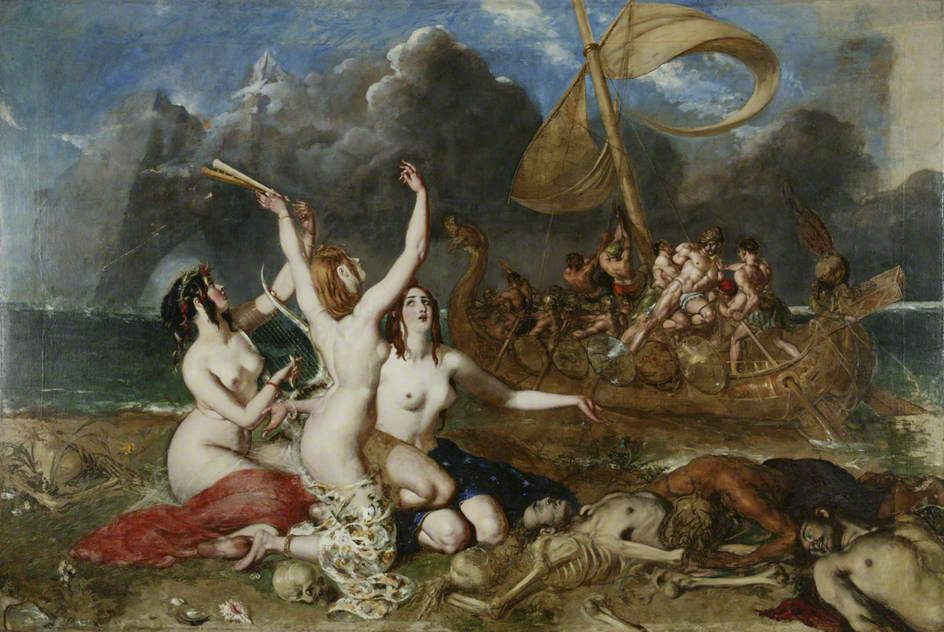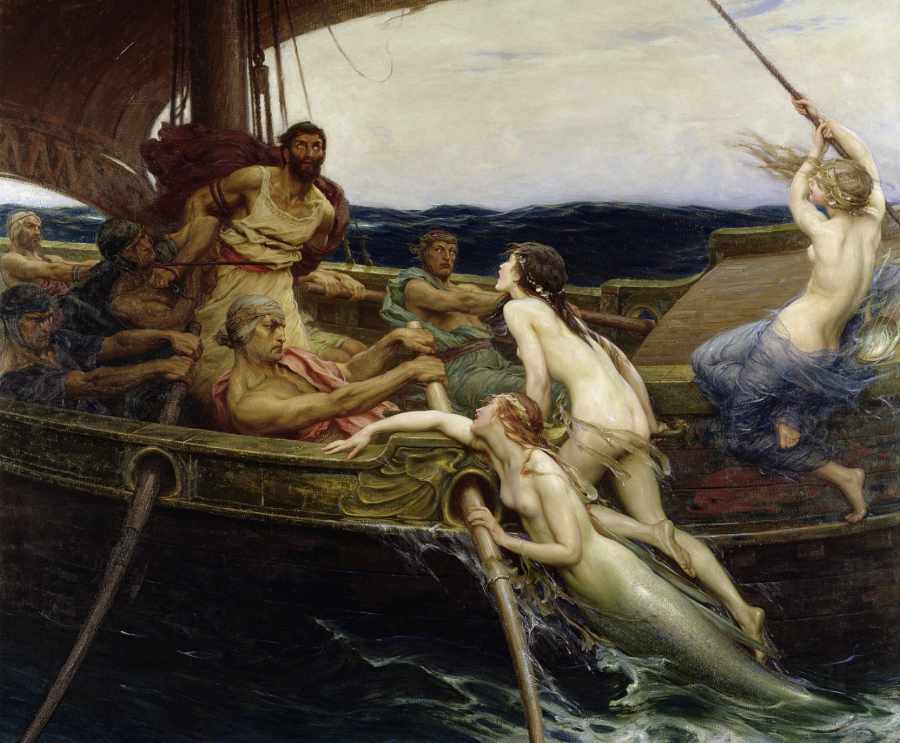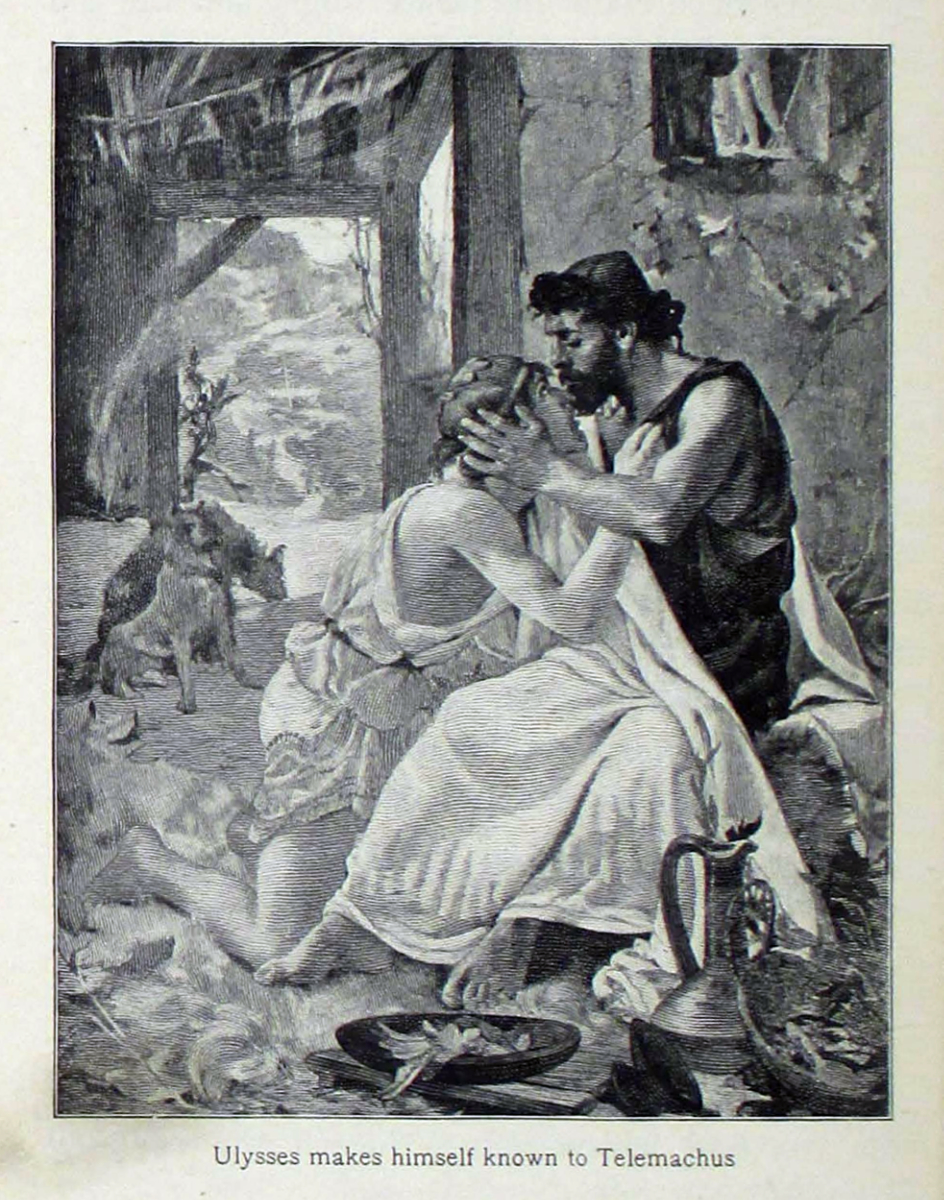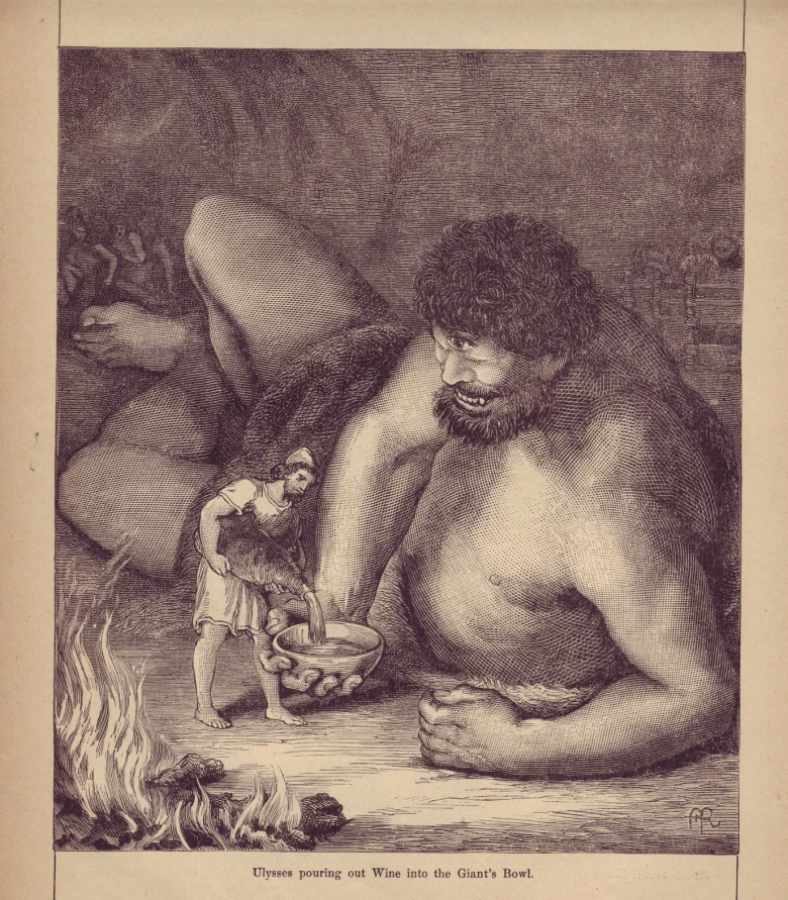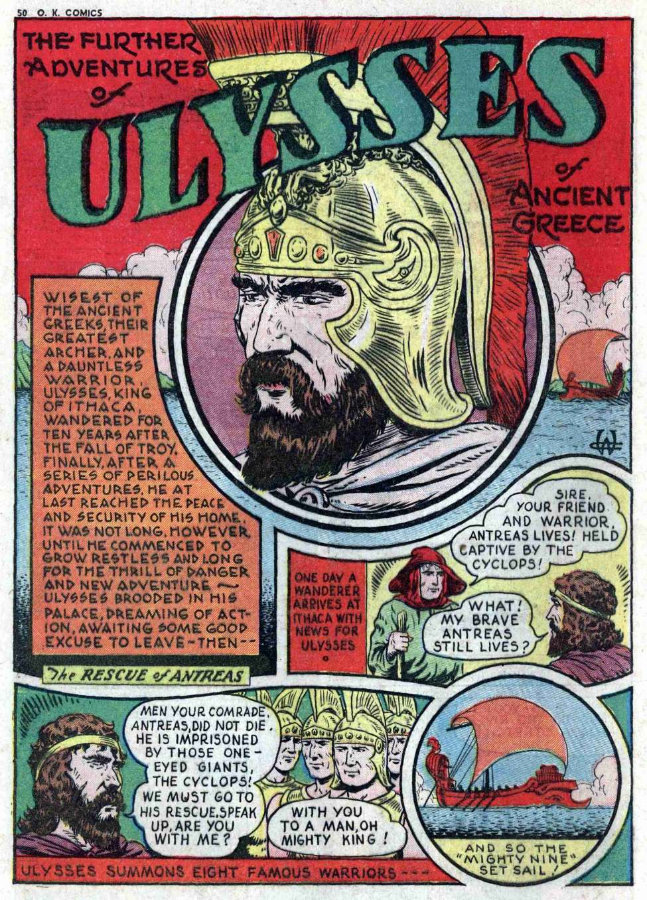In Greek and Roman mythology, Odysseus, also known by the Latin variant Ulysses, is a legendary Greek king of Ithaca and the hero of Homer’s epic poem, the Odyssey. Odysseus also plays a key role in Homer’s Iliad and other works in that same epic cycle. As the son of Laërtes and Anticlea, husband of Penelope, and father of Telemachus, Acusilaus, and Telegonus, Odysseus is renowned for his intellectual brilliance, guile, and versatility (polytropos), and he is thus known by the epithet Odysseus the Cunning. He is most famous for his nostos, or “homecoming”, which took him ten eventful years after the decade-long Trojan War.
| Alias Odysseus, Ulysses |
| Real Names/Alt Names Odysseus, Ulysses |
| Characteristics Adventurer, Sailor, Myths & Legends, Bronze Age, Greek |
| Creators/Key Contributors Homer |
| First Appearance Greek mythology |
| First Publisher ○ |
| Appearance List Literature: Homer’s Odyssey (c. 8th century BCE, English 1614), Homer’s Iliad (c. 8th century BC), Virgil’s Aeneid (29 to 19 BC), 5th century plays by Aeschylus, Sophocles (Ajax, Philoctetes), and Euripides (Hecuba, Rhesus, Cyclops), Plato’s Hippias Minor, Shakespeare’s Troilus and Cressida (1602), Dante Alighieri’s Divine Comedy (1308–1320), Lord Tennyson’s “Ulysses” (1842), The Story of Greece: Told to Boys and Girls by Mary Macgregor (191-?) [Internet Archive], Frederick Rolfe’s The Weird of the Wanderer (1912), James Joyce’s Ulysses (1918–1920), Nikos Kazantzakis’ The Odyssey: A Modern Sequel (1938), Eyvind Johnson’s Return to Ithaca (1946), The Luck of Troy (1961), et. al. Film: The Mysterious Island (1905), L’Odissea (1911), Ulysses (1954), Ulysses (1955), The Trojan Horse (1961), The Fury of Achilles (1962), Ulysses Against the Son of Hercules (1962), The Lion of Thebes (1964), et. al. Comics: Blue Bolt vol. 2 #1-2, Treasure Chest vol. 14 #5, O.K. Comics #1 (Jul 1940). |
| Sample Read The Odyssey (Translated by W. C. Bryant, August, 1871) [Standard eBooks] |
| Description In Greek and Roman mythology, Odysseus, also known by the Latin variant Ulysses, is a legendary Greek king of Ithaca and the hero of Homer’s epic poem, the Odyssey. Odysseus also plays a key role in Homer’s Iliad and other works in that same epic cycle. As the son of Laërtes and Anticlea, husband of Penelope, and father of Telemachus, Acusilaus, and Telegonus, Odysseus is renowned for his intellectual brilliance, guile, and versatility (polytropos), and he is thus known by the epithet Odysseus the Cunning. He is most famous for his nostos, or “homecoming”, which took him ten eventful years after the decade-long Trojan War. |
| Source Odysseus – Wikipedia |
